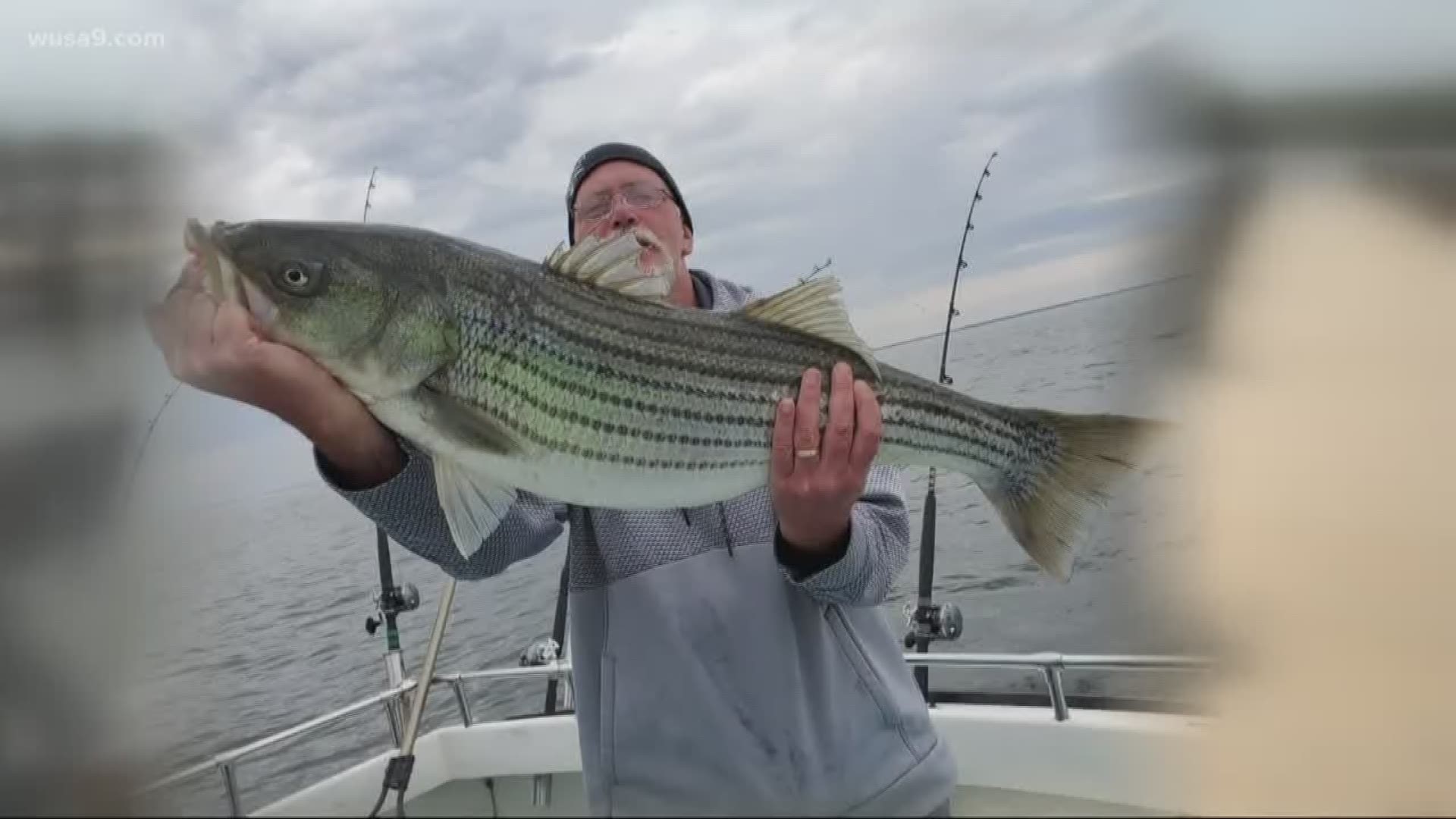ANNAPOLIS, Md. — Extreme heat, above average flows of polluted runoff, and heavy catch-and-release fishing pressure by sportsmen this summer has Maryland’s Department of Natural Resources trying to get fisherman to go home during the worst times -- or find a species besides rockfish to catch on the summer’s hottest days.
The Department has unveiled a color-coded on-line fishing advisory forecast in an effort to reduce the shocking mortality of rockfish dying in extreme conditions after being handled and released by recreational and commercial anglers.
"We’re trying to change angler behavior to reduce mortality," DNR fisheries biologist Erik Zlokovitz, said.
The department recommends limiting or stopping fishing when temperatures are at their hottest.
At least 9 percent of rockfish, also known as striped bass, die after being caught and released, according to the Atlantic States Marine Fisheries Commission.
Biologists suspect the numbers go much higher on days when air and water temperatures push into the 90s and put the fish under extreme stress.
Multiple factors conspire to run up the number of floating dead fish anglers, boaters and swimmers are reporting seeing in large numbers on the Chesapeake Bay this summer:
- First, lots of pollution has been washed into the bay this year by the wetter than normal conditions.
- That's created a larger than normal dead zone in the bay with no oxygen.
- As a result, fish trying to survive are being pushed smaller and smaller areas with warmer and warmer water, which is bad for the fish and makes it easier for fishermen to find them.
In addition, the limit for striped bass is just two of at least 19 inches. Most fisherman catch a lot of little ones before reaching the limit, and many don't want to quit when two keepers have been caught so they continue catch-and-release fishing.
Frequently they can handle and release dozens for every two they take home. Many of the released fish are dying.
Changes to regulations, size limits and the length of seasons are all expected to be under consideration at upcoming fall and winter meetings of the Atlantic Marine Fisheries Commission.
In the meantime, both the Chesapeake Bay Foundation and the Maryland Department of Natural Resources are trying to get fishermen to help.
"We would prefer once you get your limit of rockfish to think about switching to another species and moving on," Zlokovitz said.
Zlokovitz noted that other fish like snakeheads and blue catfish are abundant and good to eat.
"Please don’t just sit on a spot and catch and release all day on smaller rockfish when its hot," Klokovitz said. "It doesn’t help. "If you do catch and release, we would prefer you do it with single hook artificial lures which usually don’t do as much damage to the fish."
"When fish or other animals are already stressed out by natural conditions in the environment, fishing activities compound of top of that,” Chesapeake Bay Foundation scientist Allison Colden said. "Those are things that anglers can try and take proactive steps to try and prevent."

